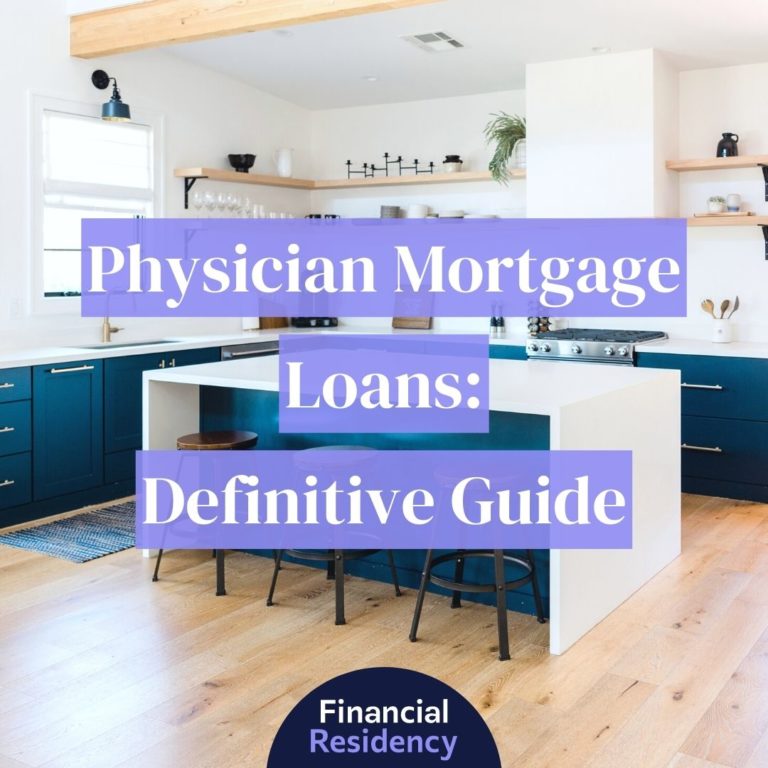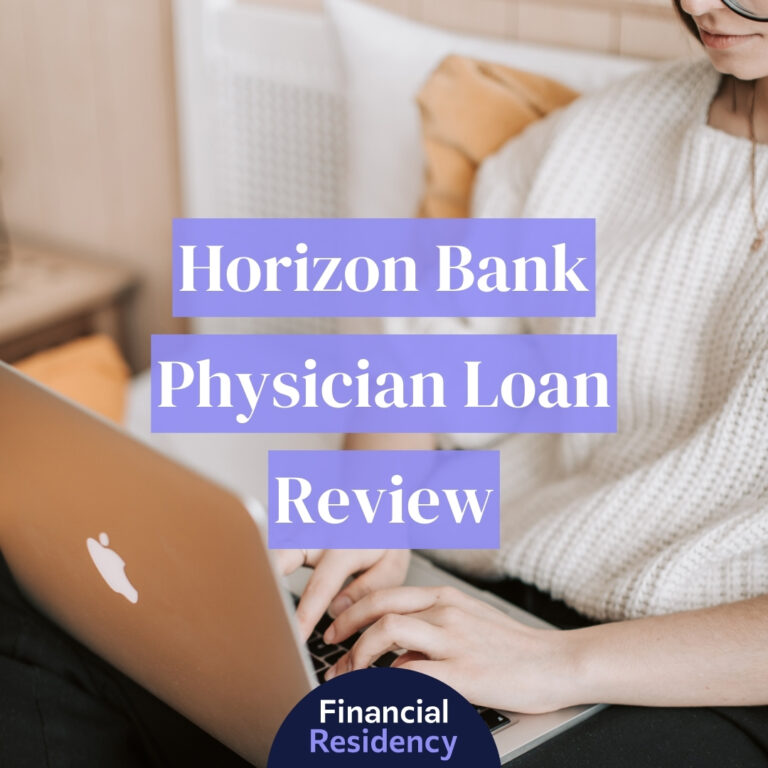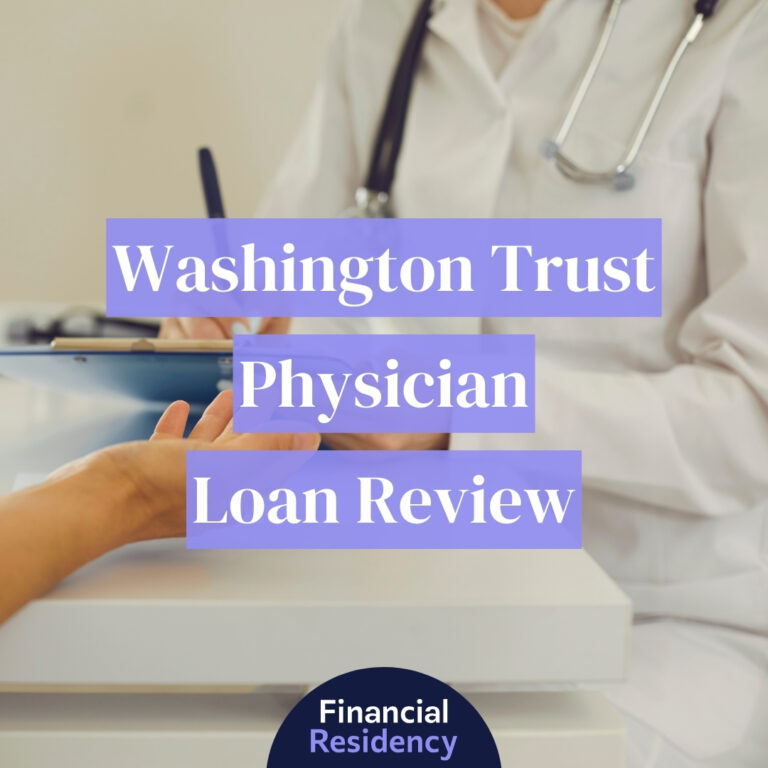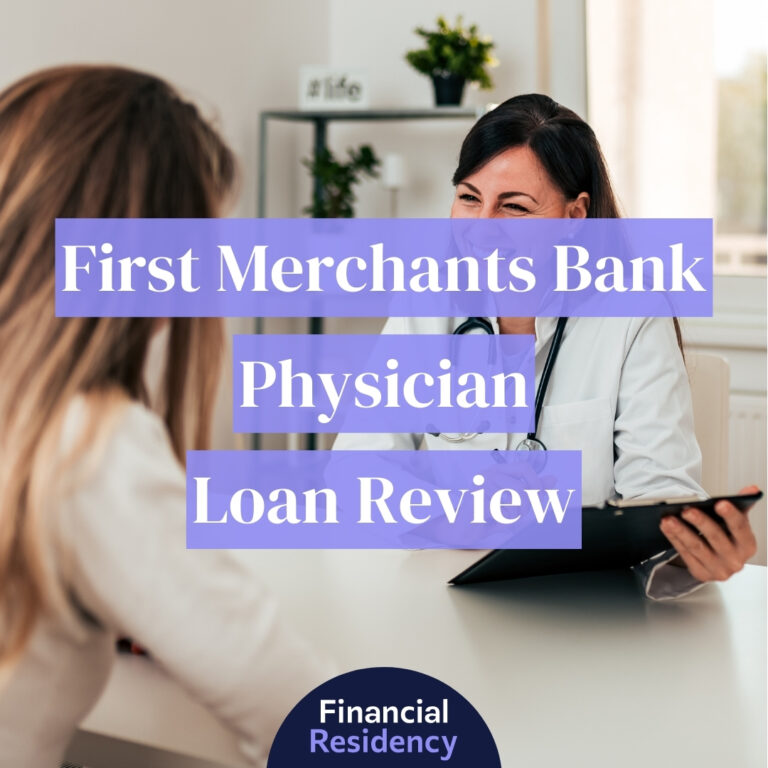If purchasing or refinancing a physician mortgage loan in Georgia is on your to-do list, then keep reading for a guide to lenders ready to work with you.
More than 26,600 physicians call Georgia home, many of which have benefited from physician loans to put down permanent roots in the Peach State.
Georgia’s population growth has been fueled by people moving from all over the country to enjoy the state’s rich culture and temperate weather.
All these people are deserving of high-quality healthcare from the nation’s best physicians.
If you’re ready for more information on a doctor loan, so you can buy the home of your dreams, be sure to check out our list of preferred lenders.
They’ll be ready to answer your questions and get you closer to your new home at a fraction of the cost of a conventional mortgage.
9 Best Georgia Physician Home Loan Lenders
Here are the top physician mortgage loan lenders in GA:
- BMO Bank
- Citizens Bank
- Fifth Third Bank
- Flagstar Bank
- Huntington Bank
- KeyBank
- Regions Bank
- TD Bank
- US Bank
Discover The Best Lenders in Georgia Answer just a few questions about your career, where you're buying, and how much you want to borrow. Our service will then show you the exact programs you're eligible for from vetted physician loan specialists who will guide you through every step of the process – obligation-free!
1. BMO Bank
- BBB Grade: A+
- JD Power Score: 805
BMO Bank’s Physicians’ Program is designed for healthcare professionals who want to purchase homes. The following degrees are accepted in the program:
- Doctors of Medicine (MD)
- Doctor of Dental Surgery (DDS)
- Doctors of Dental Medicine (DMD)
- Doctors of Osteopathic Medicine (DO)
If you have an eligible degree, you can use the Physicians’ Program to purchase or rate/term refinance a single-family home, townhouse, or condominium. The property must be an owner-occupied home, but duplexes are included.
Like most physician mortgage programs, BMO Bank (formerly BMO Harris Bank) does not require primary mortgage insurance (PMI).
Medical professionals within 10 years of completing their training can qualify for 95% financing options on loans up to $1.5 million or 90% financing on loans up to $2 million.
Doctors further along in their careers are not excluded but will be limited to 90% financing on loans up to $2 million. This down payment and loan limit is still a worthwhile consideration for any qualifying medical professional who doesn’t have a 20% down payment saved.
The Physicians’ Program also has flexible debt-to-income (DTI) guidelines. While conventional mortgage programs are stricter, BMO Bank will approve physicians with DTI ratios as high as 45%.
Doctors who have not yet started work can qualify with a signed offer letter or employment contract future-dated within 90 days of closing. Self-employed doctors can even qualify without two years of income history with a contract that outlines their base salary.
Learn More:
2. Citizens Bank
- BBB Grade: A+
- JD Power Score: 818
Doctors and dentists with 10 years of completing their training can participate in Citizens Bank’s Doctor Loan Mortgage Program. Interns, residents, and fellows can also participate in the program but they will be limited to different loan amounts than doctors later in their careers.
The Doctor Loan Mortgage Program offers the following financing options:
- Up to $850,000 with a 5% down payment
- Up to $1 million with an 11% down payment
- Up to $600,000 for licensed interns, residents, and fellows
- Up to $400,000 for unlicensed professionals
The program will provide financing up to its maximum loan amount of $1.5 million. In addition to having an eligible degree, borrowers will be required to have a minimum credit score of 700. Deferred student debt is excluded from DTI calculations or you have the option to use your income-driven repayment amount.
Loans may be used to purchase condominiums or townhouses, but not detached single-family residences.
Learn More:
3. Fifth Third Bank
- BBB Grade: A+
- JD Power Score: 815
Fifth Third Bank offers two specialized physicians loan programs. While other physician loan programs will have an age limit on eligible borrowers, Fifth Third Bank offers an option for established dentists and physicians and a different option for residents, fellows, and new physicians.
New doctors are defined as licensed interns, residents, and fellows or medical school graduates who will start residency within 90 days. Established physicians are licensed doctors or dentists who have been practicing or self-employed for at least one year.
The program for early-career medical professionals will provide up to $750,000 in financing with no down payment and up to $1 million with a very low down payment of 5%. The primary mortgage insurance requirement is waived.
Established physicians, including dentists and veterinarians, are eligible for up to a $2 million loan with a small down payment of 10%.
Both programs can be used to purchase a new home or refinance a primary residence. All borrowers will be required to have a minimum credit score of 720, which is higher than some of the other lenders on this list.
Fixed and adjustable-rate mortgages are available depending on your needs and creditworthiness.
It’s another great program for relocating physicians because employment contracts are acceptable as long as you will start working within 90 days of your closing date.
Learn More:
4. Flagstar Bank
- BBB Grade: A+
- JD Power Score: 781
Flagstar Bank provides specialized home loans to significantly more qualifying professions than the typical physician loan.
This mortgage lender requires borrowers to have a minimum credit score of 720 to qualify for 100% financing on loans up to $1 million.
If you are within 10 years of beginning your career and have one of the following degrees, Flagstar Bank’s physician loan may be right for you:
- ATP Pilot
- Attorney
- Certified Public Accountant (CPA)
- Clinical Nurse Specialist
- Doctor of Dental Medicine (DMD)
- Doctor of Dental Surgery (DDS)
- Doctor of Ophthalmology (MD)
- Doctor of Optometry (OD)
- Doctor of Osteopathy (DO)
- Doctor of Podiatric Medicine (DPM)
- Medical Doctor (MD)
- Medical resident with educational license
- Nurse Practitioner (NP)
- Pharmacist (PharmD)
- Physician Assistant (PA)
- Registered Nurse (RN)
- Veterinarian (DVM)
High-earning professionals often have significant student loan and credit card debt due to the years of education and training they’ve had to complete.
Flagstar Bank will use your monthly income-driven repayment amount to calculate your DTI. For this reason, it can be easier to qualify for higher loan amounts and purchase a home you love.
Learn More:
5. Huntington Bank
- BBB Grade: A+
- JD Power Score: 821
Huntington Bank will provide up to $2,000,000 in financing to high-earners interested in becoming homeowners in the Peach State. Borrowers will be required to show income history and sufficient cash reserves or an active employment contract.
Borrowers have a few down payment options with PMI requirements:
- 0% on loans up to $1,000,000
- 5% on loans up to $1,250,000
- 10% on loans up to $2,000,000
Ultimately, the required down payment will depend on your credit score.
A minimum score of 700 is preferable for 100% financing, but credit scores as low as 680 may be considered with a 5–10% down payment. Interested party contributions, or gifts, are allowed to be used for down payments, closing costs, or cash reserves.
Rate/term and cash-out refinancing options are available, but the maximum refinance amount is $250,000.
Loans may be used to purchase a single-family home, duplex, townhouse, or condominium.
Huntington Bank will exclude deferred student loan debt from DTI calculations or use income-driven repayment amounts. Borrowers with DTI ratios up to 50% will qualify for the physician loan program, which is more lenient than the 43% DTI typically required with conventional mortgage programs.
The following degrees are included in the program:
- MD
- DO
- DVM
- DPM
- DDS
- DMD
Learn More:
6. KeyBank
- BBB Grade: A+
- JD Power Score: 794
KeyBank’s Medical Professional Mortgage Program will provide up to $3.5 million in financing to currently practicing medical doctors, doctors of osteopathy, podiatrists, and dentists. The program does not impose age limits for practicing physicians, but retired doctors are ineligible.
Unlike many other physician loan programs, KeyBank will provide financing for primary residences and second homes. The property must be a one-unit attached or detached single-family home, condominium, or townhouse.
Key Bank’s doctor loans may be used to purchase, cash out or rate-term refinance a new home or existing property.
Deferred student loan debt is excluded from DTI calculations.
Borrowers with an existing KeyBank account can qualify for 0.25% interest rate discount.
Learn More:
7. Regions Bank
- BBB Grade: B+
- JD Power Score: 835
Regions Bank’s Doctor Mortgage Program is open to the following professions:
- Medical doctors (MD)
- Doctors of Dental Medicine (DMD/DDS)
- Doctors of Osteopathy (DO)
- Pharmacists
- Nurse anesthetists
- Nurse Practitioners
- Physician Assistants
- Veterinarians
- Chiropractors
- Optometrists
- Podiatrists
- Licensed Attorneys
Medical doctors, DOs, and dentists qualify for 0% down payment options, but the other professions will need to put at least 3% down to participate in the program.
The maximum loan amount for a zero down payment is $750,000. The program will extend up to $1,000,000 with a 5% down payment.
You’ll be required to open a bank account with the lender when you apply for the loan. Regions Bank aims to make the closing process as easy as possible through its Loan Application Status Portal.
The portal makes it simple to upload necessary documents, track the underwriting process, and expedite closing.
This portal is doubly convenient for busy medical professionals who are relocating to Georgia to continue their careers.
Learn More:
8. TD Bank
- BBB Grade: A
- JD Power Score: 837
TD Bank’s Medical Professional Mortgage is open to medical doctors, dentists, and podiatrists who are less than 10 years out of residency. These loans may be used to purchase or refinance a property you currently occupy.
Single-family homes, condominiums, and townhouses are always included in the program, but some markets may also allow for the purchase of a co-op.
The following down payment options are available:
- 0% on loans up to $750,000
- 5% on loans up to $1.25 million
- 1% on loans up to $1.5 million
The lender provides fixed and adjustable-rate mortgage options.
Private mortgage insurance isn’t required, which is designed to shave hundreds off monthly payments.
TD Bank also has a flexible debt-to-income ratio approach. Its website doesn’t specify exactly how it’s calculated, but it does state that it’s designed to meet the needs of early-career physicians who often spend most of their monthly income on student loan payments.
Contracts for new employment are acceptable employment verification for borrowers who can’t provide two or more years of income history.
Learn More:
9. US Bank
- BBB Grade: B+
- JD Power Score: 825
U.S. Bank provides financing to medical physicians and lawyers at all stages in their careers. Borrowers must have a minimum credit score of 710.
U.S. Bank does not provide 100% financing options, but borrowers can secure up to $1 million for as little as 5% down, $1.5 million for 10% down, and $2 million for 15% down. The program’s maximum loan amount is $2.5 million.
Loans may be used to purchase, refinance, or cash out home equity. Borrowers with a Platinum Checking Account will qualify for a lender credit of 0.25% of the total loan amount up to $1,000, which can help keep closing costs down.
Deferred student loan debt isn’t excluded, but they will only use 2% of the total debt or income-driven repayment to calculate DTI.
Learn More:
How Physician Mortgage Loans Work in Georgia
In Georgia, physician mortgage loans make it possible for early-career medical professionals to purchase homes that they otherwise wouldn’t qualify for with a conventional mortgage program.
Lenders, banks, and credit unions offer these programs because “doctors are nationally in [a] higher income bracket [and] they are highly in demand with very low cases of job loss,” says Rauf Majidian, co-owner of Skyline Mortgages.
As such, doctors are considered low risk for defaulting on their loans, so you can often qualify with more lenient qualifications than conventional loan programs.
Doctors often graduate with substantial student loan debt for medical school. The average student loan debt for medical professionals is more than $200,000, excluding undergraduate loans and credit card debt,
Even with the high-earning potential, this debt can skew debt-to-income calculations outside the acceptable threshold of conventional loan programs. Some doctor mortgage options will accept DTI ratios as high as 50%, whereas conventional loans will look for 45% or less.
Each doctor loan program will offer different down payment options, but it’s typical to see 85–100% financing. You also won’t have to pay private mortgage insurance, which can save you hundreds of dollars on monthly payments.
Interest rates will also vary, but standard fixed-rate and adjustable-rate mortgage products are usually available.
Every loan program will have its credit score requirement, but Majidian says, “680 is a safe spot to increase the chances of shopping around and not looking for “the only option” to qualify.”
Borrowers will still be required to pay closing costs, but lower down payment options can significantly reduce the overall expenses of purchasing a home–making homeownership more accessible to medical residents and other early career healthcare professionals.
Pros and Cons
Below you’ll find some pros and cons about physician mortgage loans in Georgia to prepare you to make the best decision for your unique needs.
Pros:
- No PMI: Physician mortgage programs don’t require private mortgage insurance.
- Low down payment: Medical doctors and other medical professionals have several low down payment options. Applicants with excellent credit may even qualify for 100% financing options.
- Student loan payments excluded: Doctor mortgage loans have flexible debt-to-income calculations, often excluding deferred student loan debt or using the income-driven repayment amount.
- Refinance: Doctor loans can be used to purchase a new home or refinance an existing property, as long as it is owner-occupied.
Cons:
- Primary residence requirement: Doctor mortgage loans typically can’t be used to purchase a second home or investment property, but there are a few exceptions.
- Limited home equity: Due to the low down payment, many physicians will have to spend years making mortgage payments to build home equity.
- May not have savings for a home repair: Because physician loans are designed for medical professionals with high debt and minimal cash on hand, it can be financially unwise to purchase a home if you don’t have the money to cover a significant home repair when it pops up.
Frequently Asked Questions
What information do I need to apply for a physician mortgage?
To apply for a physician mortgage, you must provide certain information to your lender. Mortgages are risk-based products, meaning underwriting is basing your approval on the likelihood of defaulting on your loan.
The first step in the mortgage application process is preapproval for a loan amount.
In the case of physician loans, a loan officer will look at your credit score, debt-to-income ratio, employment contract, and other personal information to determine if underwriting is likely to approve you.
If the loan officer sees you as a good fit, you can begin looking at houses.
Once you find a home you want to purchase, the mortgage approval process will begin and your application will be sent to underwriting.
In underwriting, the lender’s financial expert will look at your full financial picture and decide if you fit the risk profile for the physician loan program.
Is it easier to get a mortgage as a doctor?
Yes, it can be easier to get a mortgage as a doctor because the requirements for a physician loan are tailored to the financial challenges medical professionals often face. For example, many physician loan programs will overlook a lack of employment history, high student loan debt, and traditional down payment requirements. These more lenient qualifications can make it easier for physicians to get a mortgage.
Are physicians eligible for VA loans?
Physicians are eligible for VA loans if they meet the following qualifications:
- Has served on active duty in any branch of the armed forces for a minimum of 90 consecutive days during wartime
- Has served on active duty in any branch of the armed forces for a minimum of 181 days of active duty during peacetime
- Has served for more than six years in the national guard or reserves
- Married to a military member who died while on active duty or an injury sustained in the line of duty (must not have remarried)
Many physicians serve in the reserves or national guard part-time while continuing a civilian career. These physicians also meet the eligibility requirements for VA loans.
If you are a physician and you haven’t served in the military, an FHA or physician loan could make homeownership a reality for you.
How do adjustable-rate mortgages work?
Adjustable-rate mortgages work by attracting interested buyers with an introductory fixed rate.
During this time, ARMs may have more affordable mortgage payments than conventional loan programs.
However, the introductory interest rate eventually expires and the new rate will be adjusted based on the loan’s index. Interest rate changes will take effect on agreed-upon reset dates throughout the loan’s term.
It’s common to see 1, 3, 5, and 7-year adjustment periods over 30-year loan terms, but rates can change as often as quarterly or as infrequently as every 10 years.
What is the debt-to-income ratio required for a physician loan?
Physician loans have less strict debt-to-income requirements than conventional loan programs. In some cases, physician loan programs will approve borrowers with debt-to-income ratios as high as 50%.
Who is a Physician Loan in Georgia Best For?
Majidan says “Physician loans are best for doctors and other medical professionals who are newly starting out their careers. They usually have a lower income with high student loans. Lenders make qualifying easier by not requiring private mortgage insurance and offering low introductory interest rates.”
Low introductory interest rates, minimal down payments, and waived primary mortgage insurance requirements make it easier for medical professionals to purchase real estate and start building equity.
A mortgage broker can help you shop around for the best rates and programs for your needs. Many mortgage lenders will provide personalized assistance as you navigate the home-buying process.
Moving to a Different State?
Click on the state you are moving to and get the best physician mortgage loan lenders in that state:
Learn more about physician home loans.




